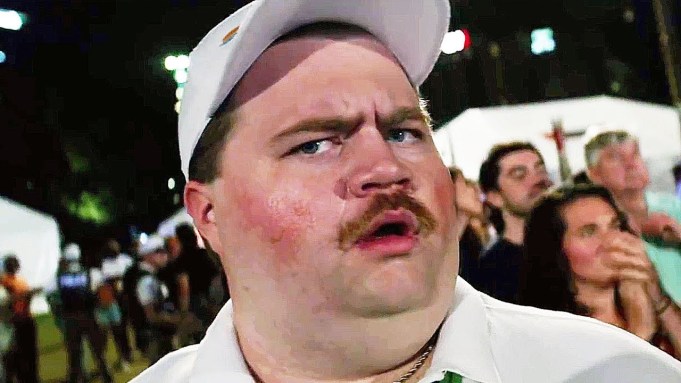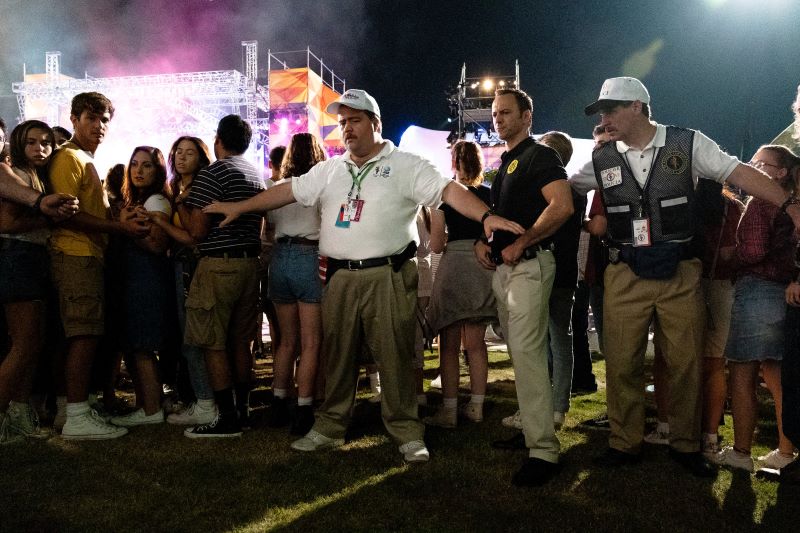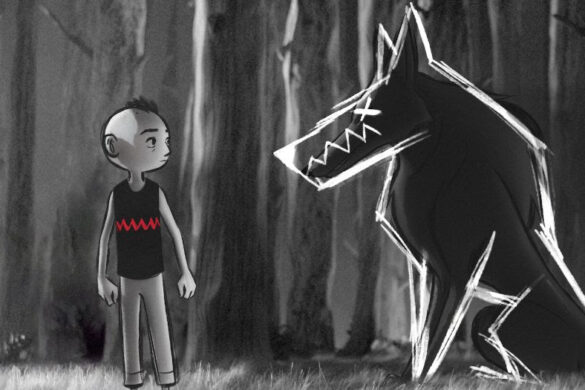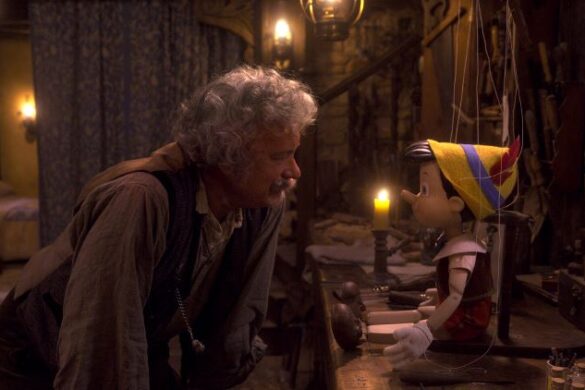Clint Eastwood’s Richard Jewell centers on the titular man’s single act of courage that saves thousands of lives from an exploding bomb at the 1996 Olympics is an exemplary form of heroism that will endure the test of time. Though it has been over 30 years since the attacks, his story will live on in the most paradoxical ways. One side will show what heroism looks like but the other explores dangers of how bias and lazy journalism can sow the seeds of unjust vilification and destroy a man’s life and reputation. While there are some exceptional performances from Paul Walter Hauser, who plays the titular real-life man, and Sam Rockwell, the film feels strangely hollow as it falls into the trap of being formulaic and dated.
The film opens with Jewell, an average everyday office supplier who fills a law firm with paper, staples, and tape. Though his job is fairly simple and other people don’t think much of him, he has aspirations to be a police officer. A talent of which Watson Bryant (Sam Rockwell) admires. Flash forward years later, Jewell has gone from a being a police officer at one prescient to a college police officer to a security guard. Not one to get a lowly position like this get the better of him, Jewell remains devoted to the idea of protecting and serving the people.
On one fateful July 27 night, Jewell managed to save thousands of people from being killed during the 1996 Summer Olympics at the Centennial Park in Atlanta, GA. Though many are grateful, all of the praise turns sour as the FBI investigation, led by Tom Shaw, (Jon Hamm) names Jewell as the suspect, and the ambitious Kathy Scruggs (Olivia Wilde) makes it public, Jewell is vilified and deemed a terrorist. That is until he is cleared 88 days later.

Though Jewell’s story lends itself to be visualized for the masses, it is based on a 1997 Vanity Fair piece, time may not have been on their side. The film feels more like something better off reading from the actual source than a visual adaptation of said source. And because it is an adaptation, it can embellish certain parts of the story to add more entertainment value. This only hurts the authenticity of the story as certain events may not have occurred.
Such is the case for Wilde’s portrayal of real-life journalist Kathy Scruggs. The film depicts Scruggs as a villain and implies that she would sleep with her sources to obtain a scoop. There has been some debate on whether or not this is true, plus it is an old and very dated trope that we would expect to see from a female journalist in any film. Furthermore, Scruggs is no longer alive to be able to defend herself against such implications, making the scene itself even more unnecessary and usually cruel.
But there is some truth to the fact that the media can be so caught up in the idea of breaking the news first that it would sell out an innocent person like Richard Jewell. Though some media sources have higher standards, others would do anything to make that breaking news that would make a name for themselves. Still, the film goes out of its way to make the media and FBI the bad guy with no chance of redemption.
However, it does not lose sight of how the common man can be a hero. Eastwood and screenplay writer Billy Ray does not shy away from the fact that Jewell was slightly off but in no way was a danger to anybody. Perhaps he is most guilty of being too dedicated to the job. So much so that he was fired for the sheriff’s office and from the university police. And he has this child-like demeanor to respect someone of a higher authority without question. This does not go well for Jewell who doesn’t know that he is being mocked by them or being tricked into saying something that would incriminate him.
And Hauser plays that role well to a point where he gets lost in it. The audience sees someone they can sympathize with because all they see is a hero who is being vilified but also doesn’t make it easy to clear his name when he makes foolish mistakes like talking to the FBI when he isn’t supposed to, having a spotty job record, or the image of a single 33-year-old man who lives with his mother and has a lot of guns – which he uses for hunting purposes.
Kathy Bates is another bright spot for the film. She plays Barbara “Bobi” Jewell, the mother of Richard Jewell. Her love for her son never waivers even when things are beginning to look bleak. You can feel her pain and frustration as the FBI collects evidence by ransacking her home, and you can see her maternal instincts come through as she defends her son, with tears in her eyes and a voice that emotionally stammers, during a press conference. Though that is something that is to be expected from someone of Bates’ caliber, it doesn’t make the performance any less compelling.
And the same can be said for Rockwell’s Watson Bryant, who helps the film come full circle when Jewell asks for a lawyer to be present. Bryant is seen as the bullish lawyer who won’t back down even though Jewell isn’t making defending him easy, and wonders why Jewell isn’t fighting back against the FBI.
It’s not as though Richard Jewell’s story didn’t deserve to be told in theaters, but maybe a theatrical release isn’t the right approach. The character work is fine, although it is somewhat flawed and dated. While Hauser, Bates, and Rockwell’s performances are just enough from the film being another dull visualization of history, it feels like Vanity Fair profile on the man is a far more compelling and interesting read.
Richard Jewell is in theaters December 20 and is Rated R.











